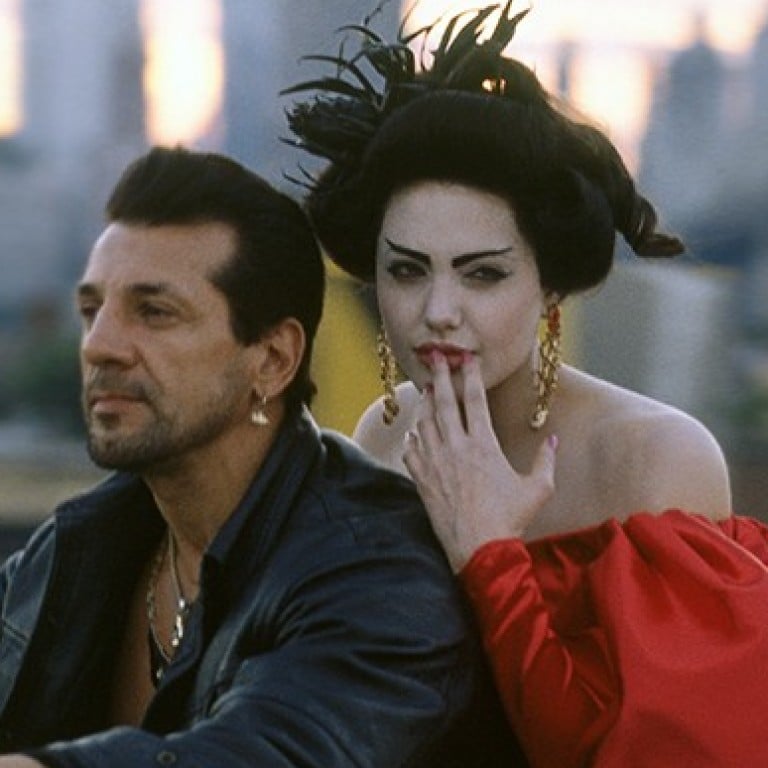5 recent LGBTQ+ movies that have made an impact – and how Angelina Jolie is influencing the conversation

From international Oscar winners Call Me by Your Name and A Fantastic Woman to art house success stories Adam, Girl and BPM (Beats per Minute) – here are 5 brilliant LGBTQ+ films from the past 3 years you need to see
No art form has the ability to shape contemporary mainstream opinion like cinema. An immersive blend of picture, sound and storytelling – best enjoyed in a darkened room without distraction – films invite viewers into alternative realities more effectively than books, music or paintings can hope to: the best movies are like empathy-conjuring machines, framing societal issues and shattering preconceptions by putting viewers inside the heads and circumstances of characters they may never have been able to imagine – or even tolerate.
This recent global wave of LGBTQ+ storytelling builds on the energy and influential example of earlier door-opening landmarks – most notably French lesbian romance Blue Is the Warmest Colour, the controversial winner of Cannes Film Festival’s top prize Palm d’Or in 2013, as well as the unlikely attention afforded to Tangerine (2015), a movie starring two trans women of colour that was shot entirely on an iPhone.
The Oscars’ snub of Queer Palm-winning female romantic melodrama Carol, in 2016, undoubtedly informed the Academy’s decision to hand the Best Picture statue to Moonlight, a coming-of-age exploration of sexuality and identity, a year later (sorry, La La Land).
The fact the following five movies have all emerged, from five different countries, within the past three years reflect a major shift in both filmmakers’ daring, and the important role cinema has to play in driving the LGBTQ+ conversation forward. And the fact that most of these movies occupy a period setting only helps reinforce how far we’ve come in that time – but we all know there’s so much further to go.
Call Me by Your Name (2017)
This achingly beautiful coming-of-age drama navigates the smoulderingly illicit romance of a 17-year-old boy and a 24-year-old graduate student, temporarily employed by the boy’s father as a live-in research assistant. If that sounds like a potentially exploitative dynamic, it’s a testament to Italian filmmaker Luca Guadagnino’s measured poise, delicately unravelling the passion through shared glances and unsaid gestures, rather than bold declarations or explicit acts.
Based on André Aciman's 2007 novel of the same name, the action – or lack thereof – unfolds over a long, lazy summer of 1983 in northern Italy. Scorching, topless days pass in pent-up sensuality; reading, swimming and wandering, an ode to leisure, lust and self-reflection under the sunshine. The gawkish, teenage musical prodigy is played by the awkwardly excellent Timothée Chalamet, while as the jockish graduate Armie Hammer avoids hamming it up in a career-best performance as the visiting American playboy.
Shot in English, Call Me by Your Name was a co-production between host Italy, alongside Brazil and the US, where it was nominated for four Academy Awards, including Best Picture, while James Ivory took the Oscar statue for Best Adapted Screenplay. The final scene will leave you breathless.
A Fantastic Woman (2017)
Chile’s winner of last year’s Best Foreign Language Film Oscar is a gripping, heartbreaking story of a young transgender waitress and singer, Marina, living in Santiago with her older partner, Orlando – who dies suddenly at the film’s outset. Distraught and alone, she must now face the sneering judgemental gaze of a pitiless, prejudicial society. Of a police force who attempt to assign blame. And of Orlando’s transphobic family – who harass, bully and conspire to strip her of her home, steal her dog and block her from the wake and funeral of her cohabiting partner. The basic human right of dignity is conspicuously denied, time and time again. Yet every single scene feels tragically real and wholly imaginable.